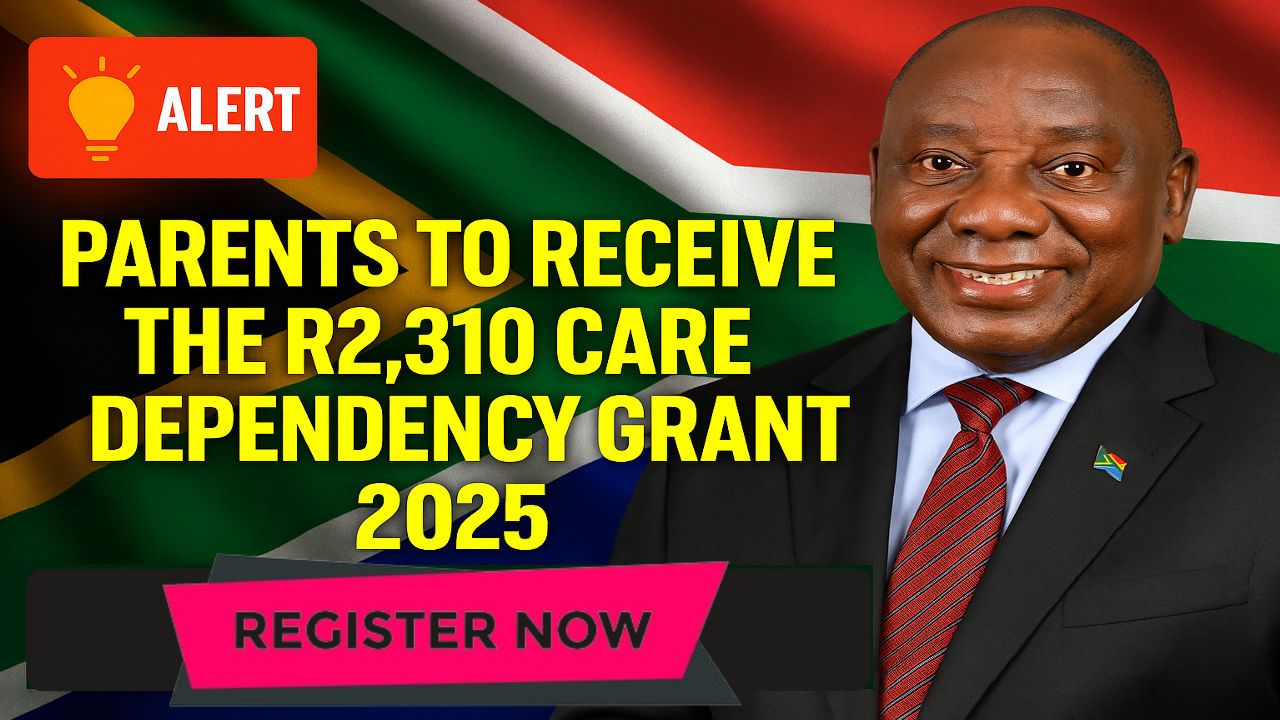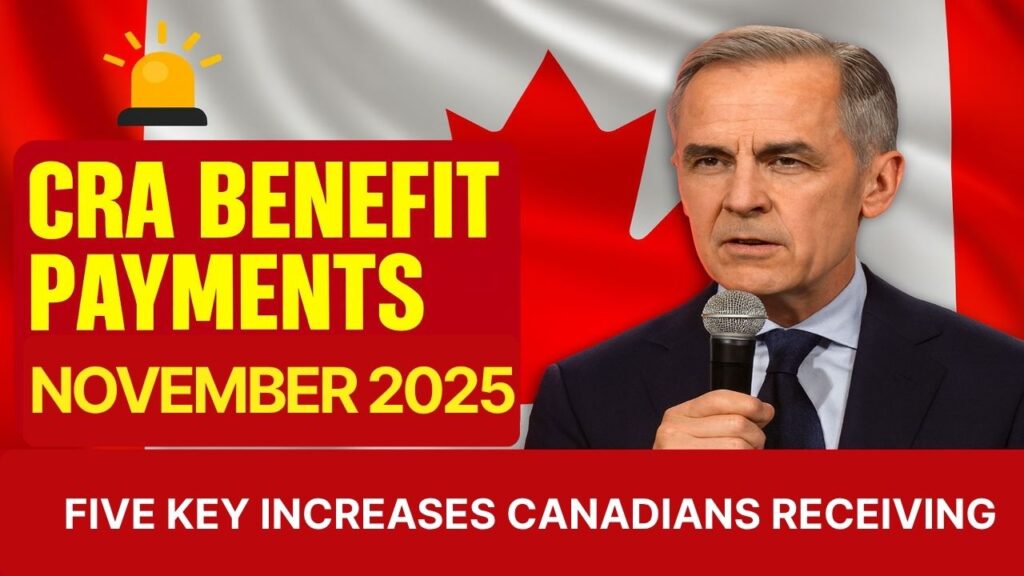Families caring for a child with a severe disability rely on the Care Dependency Grant (CDG) to cover expenses such as medical appointments, school costs, and transport. Beginning November 2025, the grant amount increases from R2,310 to R2,320, as part of a nationwide R10 adjustment across most SASSA social grants. Though the increase may seem small, it represents the government’s ongoing commitment to support vulnerable families and children with special care needs.
Table of Contents
SASSA Care Dependency Grant 2025 Quick Summary

Particulars |
Details |
|---|---|
New Monthly Amount |
R2,320 (from November 2025) |
Previous Amount |
R2,310 |
Who Qualifies |
Caregivers of children under 18 with permanent or severe disabilities requiring full-time care |
Residency Requirement |
Caregiver and child must both live in South Africa |
Means Test Limit |
Single: R223,200 per year; Married: R446,400 per year (foster parents exempt) |
Payment Methods |
Direct bank/Postbank deposit, cash at pay points, or via an approved institution |
Appeal Period |
90 days from date of decision |
Official Website |
Overview of the 2025 Increase
The South African Social Security Agency (SASSA) has confirmed that the Care Dependency Grant will rise to R2,320 per month starting in November 2025. This increase follows the government’s broader adjustment of all social assistance grants to help low-income families manage rising living costs.
The Care Dependency Grant supports parents, guardians, and foster families raising children under 18 who have severe disabilities that demand continuous care. This program ensures that families with special needs children can afford essentials such as healthcare, therapy, and education.
Who Qualifies for the Care Dependency Grant
To receive the Care Dependency Grant, applicants must meet the following conditions:
- Residency and Citizenship
- You must be a South African citizen, permanent resident, or refugee living in South Africa.
- Both the child and the caregiver must permanently reside in the country.
- Child Age and Condition
- The child must be under 18 years old.
- A state medical officer must certify that the child has a severe disability and needs full-time care at home.
- The child must not live permanently in a state institution that provides full-time care.
- Means Test Requirement
- Your income must be below the set threshold:
- Single caregiver: not more than R223,200 per year.
- Married caregivers: combined income not more than R446,400 per year.
- Foster parents are not subject to the means test.
- Your income must be below the set threshold:
- Legal Relationship
- You must be the child’s biological parent, legal guardian, or foster parent.
Payment Methods
The Care Dependency Grant can be received in several ways:
- Direct deposit into your bank or Postbank account.
- Cash payments at designated SASSA pay points.
- Payments through an institution that cares for the child (with prior approval).
If you cannot collect the payment yourself due to illness or disability, SASSA allows you to nominate a representative to collect the grant on your behalf, provided this person is officially registered with the agency.
Staying Eligible and Avoiding Suspension
SASSA may periodically review your eligibility to ensure the grant is still valid. To continue receiving your monthly payments, you must:
- Inform SASSA of any changes in your or your child’s circumstances (such as income, address, or health).
- Participate in scheduled reviews or medical re-evaluations when requested.
- Keep your banking and contact details updated.
- Respond promptly to SMS alerts or letters from SASSA.
Your payments could stop if:
- The child turns 18, passes away, or is admitted to a state care facility permanently.
- You fail to collect your grant for three consecutive months.
- You do not cooperate during SASSA reviews.
- False information is found on your application.
SMS Alerts, Online Portal, and How to Fix Delays
SASSA provides SMS notifications to alert beneficiaries about payments, reviews, and status updates. To prevent payment interruptions:
- Ensure your cellphone number is active and correct in the SASSA system.
- Check your balance and payment status through the official SASSA website or mobile app.
- Update your banking details if you’ve changed accounts.
- If a payment delay occurs, visit your nearest SASSA office with:
- Your ID document
- Child birth certificate
- Proof of bank account
- Any SASSA correspondence or SMS notifications
Delays are usually caused by missing documentation, outdated contact details, or system reviews. Once corrected, payments typically resume the following month.
If Your Application Is Denied
If your Care Dependency Grant is refused or stopped, you have the right to appeal the decision.
- Appeals must be submitted within 90 days of receiving the notice.
- Address your appeal to the Minister of Social Development or the official appeals tribunal.
- Include supporting evidence such as updated medical assessments or proof of income.
Responsibilities of Beneficiaries
To remain compliant and avoid suspension, caregivers should:
- Keep all documentation, including ID copies and medical forms, updated.
- Cooperate during reviews and medical re-assessments.
- Notify SASSA of changes such as moving to another province, hospitalisation, or a change in caregiving arrangement.
How to Apply or Update Your Details
- Gather all required documents:
- ID (caregiver and child)
- Birth certificate
- Proof of address
- Recent medical report from a state medical officer
- Proof of income (if applicable)
- Visit your nearest SASSA office to apply or update details.
- Choose your preferred payment method.
- Wait for the SASSA confirmation SMS about your application or review status.
Frequently Asked Questions
1. What is the new Care Dependency Grant amount in 2025?
The monthly amount increases to R2,320 starting November 2025.
2. Who qualifies for this grant?
Caregivers of children under 18 who have a severe, permanent disability that requires full-time care.
3. Do foster parents have to meet the income limits?
No. The means test does not apply to foster parents.
4. How do I know if my payment is delayed?
You will receive an SMS from SASSA, or you can check the official website or app for payment updates.
5. What should I do if my grant is suspended?
Visit a SASSA branch immediately, submit the missing documents, or file an appeal within 90 days if you believe the suspension was incorrect.
6. Can someone collect the grant on my behalf?
Yes. You can nominate a representative, but SASSA must approve this arrangement beforehand.
For More Information Click HERE











